![]()
![]()
![]()
Use LEFT and RIGHT arrow keys to navigate between flashcards;
Use UP and DOWN arrow keys to flip the card;
H to show hint;
A reads text to speech;
28 Cards in this Set
- Front
- Back
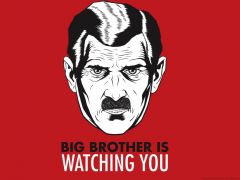
Totalitarianism |
Political system in which the total control belongs to the government.
(Cambridge dictionary) |
|
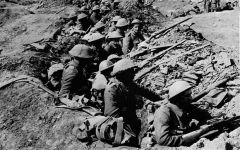
War |
Conflict between nations.
(Word Reference) |
|
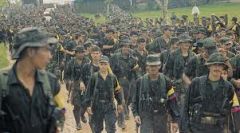
Guerrilla |
Small organized groups of the military.
(Word Reference) |
|
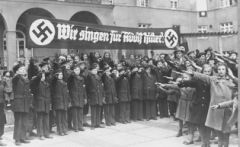
Holocaust |
Period of time were the Nazis extermined Jews.
(Free Dictionary) |
|
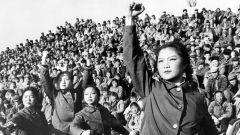
Genocide |
Violence against a group of people that share characteristics such as religion, education, etcetera.
(History Topics) |
|

Dirty War |
A not fair war were the human rights are violated. Some examples are kidnapping, torture, and murder to inocent civilizan people.
(Dictionary Reference) |
|
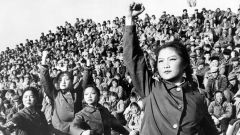
Revolution |
A movement to change the way a society is working.
(Columbia Education) |
|
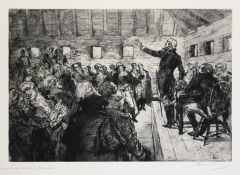
Dictatorship |
A type of government were the complete power is over one person.
(Princetown Education) |
|
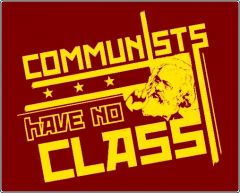
Communism |
An organization were all the society has the same. There are no social classes.
(Merrian Webster Dictionary) |
|
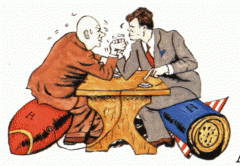
Cold War |
Desagreement between the United States and the Soviet Union before the World War II.
(Free Dictionary) |
|
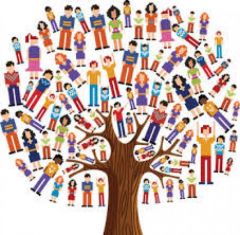
Society |
An organization for people who have the same interest or aim.
(Cambridge Dictionary) |
|

Civil Society |
People living in the same place that share characteristics.
(Cambridge Dictionary) |
|
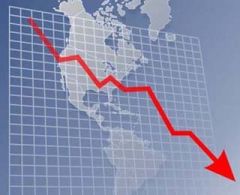
Economic Crisis |
Time of economic problems with low wealth. (The New International Webster’s Pocket Thesaurus of the English Language. (1998) Trident Press International.) The Great Recession. (The State of Working America, The Great Recession) |
|
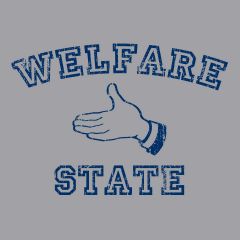
Wealfare State |
Financial support from the government to people who need it. (Urdang, L. (1995) The Oxford Desk Dictionary. New York: Oxford University Press.) National Insurance Act de 1946 (England). (A The National Archives, 1940's Origins of a Welfare State) |
|
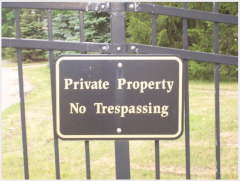
Neoliberalism |
Theory in which the human liberty and rights are fundamental for common benefit. (Harvey, D. (2007) Breve Historia del Neoliberalismo. Akal. Introducción (page 6).) The Washington Consensus in 1989. (Williamson, 2004. Prescription Development) |
|
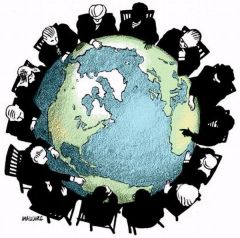
Globalization |
A fenomenum that eliminates the differences and connects everyone globally. (The American Heritage Dictonary -Fourth Edition-)
Financial crisis in Mexico that expanded to all Latin America in 1994. (Protestante Digital, Antecedentes Históricos de la Globalización) |
|
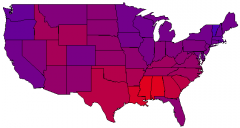
Regionalism |
The division of an area into individual regions. (The American Heritage Dictonary -Fourth Edition-) In 1966, a regional organization in Asia with the Pacific Council emerged (ASPAC). (ADB Institute, The Development of Asian Regionalism) |
|
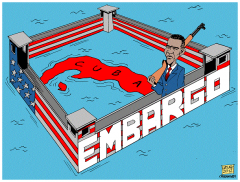
Trade Embargo |
Government suspension of trade between countries, ships in ports, importations, exportations. (The American Heritage Dictonary -Fourth Edition-) In 1807, Britain and France restricted the trade with other nations to decrease their economy balance. (Monticello, United Nations. Embargo of 1807) |
|
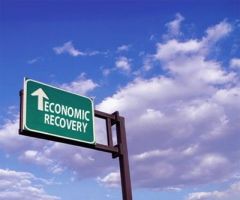
Economic Recovering |
The economic wealth movements of a nation in control of production and distribution. (Laurence. The Oxford Dictionary. 1995) In 1980, Ronald Reagan proposed the economic recovery tax to reduce taxes and stimulate economic growth. (Clayton, Gary. Economic principles & Practices. 2005. McGrawHill) |
|

Economic Miracle |
A not expected growth in economy. German economy growth in the 1940's. (Henderson, David.German Economic Miracle. The Concise Enclyclopedia Economics) |
|
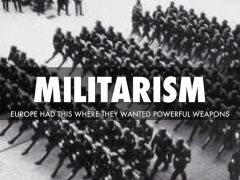
Militarism |
It is a high amount of the military strenght forces in a country. It is the use of military force against civilian people to have control and avoid problems. It was one of the main causes of the World War I. http://www.funfront.net/hist/wwi/military.htm |
|

Propaganda |
The main purpose of the propaganda was to spread a point of view to influence and change a cause. http://connected.mcgraw-hill.com/ssh/programSearch.do?bookId=GBOPBD8V7SE4BQOSJPRBQQ4HJQ&searchTerm=militarism |
|

Imperialism |
The land extension of nation, conquering and gaining control of new lands, making them part of their nation. http://alphahistory.com/worldwar1/imperialism/ |
|
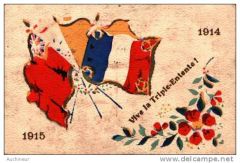
Triple Entente |
Was made up by France, Great Britain and Russia. This alliance was made to have a formal agreement to support each other. It was a reaction to the formation of the Triple Alliance. http://www.bbc.co.uk/schools/worldwarone/hq/causes2_01.shtml |
|
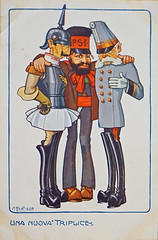
Triple Alliance |
Was made up in 1882, by Austria-Hungary, Italy and Germany. Also was to made support to each other, and to keep Italy away from an alliance with Russia. http://www.historyonthenet.com/ww1/causes.htm http://global.britannica.com/EBchecked/topic/605722/Triple-Alliance |
|
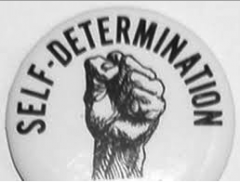
Self-Determination |
It is the process of forming a new country or nation with its own type of government. "In World War I the Allies accepted self-determination as a peace aim." http://global.britannica.com/EBchecked/topic/533380/self-determination |
|
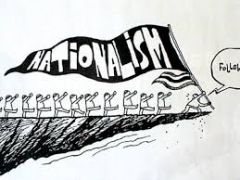
Nationalism |
It is the feeling of belonging somewhere, to feel identified by a culture, lenguage, religion and national symbols. http://connected.mcgraw-hill.com/ssh/programSearch.do?bookId=GBOPBD8V7SE4BQOSJPRBQQ4HJQ&searchTerm=nationalism |
|
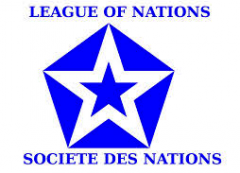
League of Nations |
It was a league for the "victorious" countries of the World War I. The main purpose was to prevent more conflicts and another great war. Wilson (President of the United States) proposed the League in the 14 points. http://global.britannica.com/EBchecked/topic/405820/League-of-Nations |

